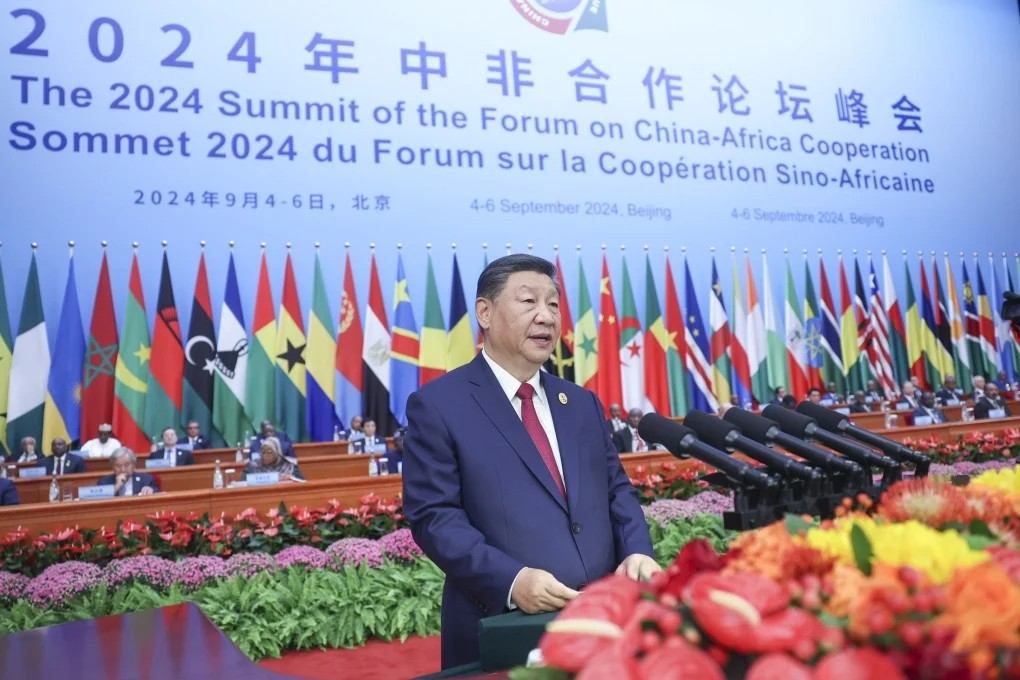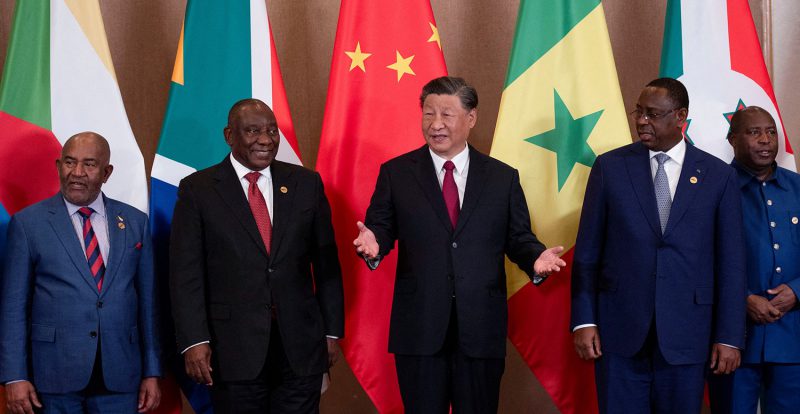BRICS member China is negotiating a new economic deal with 53 African countries that will eliminate all tariffs and give special market access. The latest development could significantly benefit all the least developed countries (LDCs) in Africa and boost their respective economies. “China is ready to welcome quality products from Africa to the Chinese market”, said the Foreign Ministry.
The duty-free market access to BRICS member China could make African countries rewrite policies that benefit the two nations. The Xi Jinping administration is leveraging the dissatisfaction with Trump’s policies and is pulling emerging economies into its fold. The new Pew Research Center report shows that 66% of countries have no confidence in Trump’s global policies. Only 24 countries show confidence in Trump and trust him to “do the right thing in world affairs.”
Also Read: BRICS Bank Plans To Disburse Loans in National Currencies
China knows that a handful of countries from Africa are part of the BRICS bloc including ‘partner countries’. South Africa, Ethiopia, Nigeria, Uganda, and to an extent Egypt are all a part of the same region. “It enables middle-income countries like Kenya, South Africa, Nigeria, Egypt, and Morocco to be able to now enter the Chinese market duty-free,” said Hannah Ryder, founder of Africa-focused consultancy Development Reimagined to Reuters.
BRICS Member China Looks to Uplift Africa’s Global Position


During a summit last year, BRICS member China pledged to invest $50 billion in African economies over three years. The investments include infrastructural projects such as railroads, ports, and tapping natural resources. African nations have agreed to the funding deal as an influx of investments enters its borders.
Also Read: BRICS: US Bank Exec Warns Exporters Are Rejecting the US Dollar
While the US is distancing itself from other countries, BRICS member China is making them come near its fold. The shift in global structure could provide BRICS a boost in the arm as many countries are following in its footsteps. However, many critics point out that the policies are skewed in favor of China and provide little help to Africa.





